
The whole purpose of the coalition is basically asking the government to modernize the current system, which is outdated. It dates from the time when people had to physically go to a casino or a racetrack to place a bet.
To hear the Québec Online Gaming Coalition (QOGC) tell it, Québec had an opportunity to become the first Canadian province to create a regulated framework for iGaming back in 2014.
Québec passed, despite ordering a comprehensive report on iGaming by academics from around the province four years earlier.
During those four years, researchers compared the popularity of online poker in Québec played on Espace Jeux — the iGaming website of the provincial lottery, Loto-Québec — to five private operators: 888poker, Full Tilt Poker, partypoker, PokerStars, and William Hill.
The QOGC says Ontario used the report to set up its own regulated marketplace for online poker, online casino gaming, and sports betting. That market launched in April 2022, and generated CAD $1.4 billion (USD $1 billion) in its first year.
Adding insult to injury? Three of the five online poker operators that researchers in Québec took a look at years earlier — 888poker, partypoker, and PokerStars — fully exited the gray market and jumped into Ontario’s regulated space.
Now, the QOGC has a meeting with the current Québec government to discuss the recommendations contained in the academic report that taxpayers in the province paid for — starting with the suggestion that Québec abandons its current model where the provincial lottery, Loto-Québec, holds a monopoly on iGaming.
In its place, the coalition wants to see an independent regulator in charge of promulgating rules for online poker, casino gaming, and sports betting and managing a system based on the issuance of licenses to private operators.
- Excellent tournament schedule
- The best variety of game types
- #1 Rated online poker room in Ontario by pokerfuse.com
Ontario Took Québec’s Ideas and Ran With Them
Loto-Québec has a commercial activity mandate: to generate revenue for the Québec government through gaming activities — [it’s] like asking Dracula to supervise a blood bank.’
“The whole purpose of the coalition is basically asking the government to modernize the current system, which is outdated,” QOGC spokesperson Nathalie Bergeron told Poker Industry PRO in an exclusive interview on May 30. “It dates from the time when people had to physically go to a casino or a racetrack to place a bet.”
Loto-Québec holds a monopoly on iGaming, but it’s a monopoly in name only, Bergeron said. “With the internet being what it is, now there are no real boundaries, and the availability of the platform makes that monopoly more of an idea than a fact right now.”
Bergeron added that most Québécois don’t know that Loto-Québec doesn’t answer to an independent regulator and is also in charge of responsible gaming initiatives. Both of those facts are problematic, she argues.
“Loto-Québec has a commercial activity mandate, which is to generate revenue for the Québec government through gaming activities. But they are also responsible for promoting responsible gaming. As a matter of fact, in 2014 [the Nadeau report] pointed out that this was nonsense — it was 'like asking Dracula to supervise a blood bank.’
“Their words, not mine, but I think the image speaks for itself.”
The report Bergeron referred to was conducted by Dr. Louise Nadeau, a psychology professor from the University of Montréal, with contributions from researchers from the Université de Sherbrooke and Concordia University.
Nadeau and her colleagues presented their findings in 2014, but the Québec government at the time shelved it.
“It was the previous government, so it is hard to say why they shelved it — you would have to talk to the minister who was in position at the time,” Bergeron said. “However, what I think is interesting to point out is that the recommendations from the Nadeau report are exactly what Ontario has put in place. So, a report that’s been paid for by Québec taxpayers has been used to inspire other lawmakers, which I find ironic.”
Coalition to Meet With Finance Ministry
Ontario is a jurisdiction that is very similar to Québec. What they have put in place is doable here, and it makes a lot of sense. And based on the recommendations of the Nadeau report, it goes with what the experts in the industry here are already saying.
The QOGC will meet with Finance Minister Éric Girard’s office soon. “We have asked for a meeting, and they have accepted our request,” Bergeron said. “We will be meeting in the coming weeks.
“We’re coming to the table with the objective of working hand-in-hand with the Québec government to help create that framework and make things more forward collaboratively. But it’s up to them to say whether they’re open to the idea or not.”
The coalition estimates that Ontario took in CAD $380 million (USD $287 million) in tax revenue from the first year of iGaming in the province. Québec could similarly cash in, the QOGC says.
“It will be up to the government to decide what is acceptable and what works best for Québec,” Bergeron said. “However, Ontario is a jurisdiction that is very similar to Québec. What they have put in place is doable here, and it makes a lot of sense. And based on the recommendations of the Nadeau report, it goes with what the experts in the industry here are already saying.”
- Exciting tournament action
- Quality software & mobile apps
- Online WSOP bracelet events
Online Poker Likely Part of Québec’s iGaming Future
What we need to focus on first is getting the Quebec government to see the reality and addressing the fact that the system is currently no longer working.
Although online poker in Québec was in the crosshairs of researchers tapped by the QC government, Bergeron said it was too early to speculate as to whether Québec would permit multi-jurisdictional or multi-provincial online poker — perhaps even with a shared player pool with Ontario.
“At this point, we’d be getting ahead of ourselves going into that level of detail. What we need to focus on first is getting the Quebec government to see the reality and addressing the fact that the system is currently no longer working.
“Once we’ve made that headway, going into more technical details with the different offerings from the members will be the next step. But there’s more than enough work in getting everyone on the same page first before going into the weeds. We need to make some headway first, and then the members will be able to move forward with more of their specific offerings.”
But consider that the parent companies of DraftKings, BetMGM, BetRivers, and FanDuel are QOGC members. And if the Nadeau report is any indication, online poker will likely be a part of Québec’s iGaming future.
That said, operators will likely be required to implement several safeguards for players. The researchers gave Espace Jeux high marks for including three responsible gaming tools — a clock, regular reminders, and game history monitoring.
“Among the most popular poker and casino sites with Quebecers, a clock is usually available, but rarely visible; reminders are rare (2/10 sites); all but one of the sites allow users to request game and transaction history,” the Nadeau report stated.



